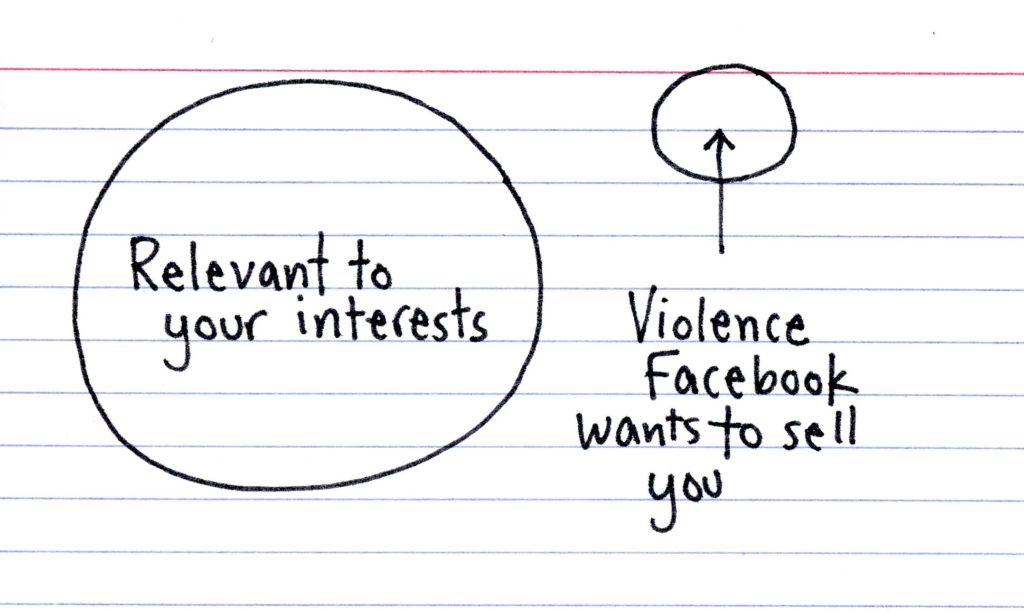
The post Beware all ye who enter here. appeared first on Indexed.

The post Beware all ye who enter here. appeared first on Indexed.
I can try.
Dear Depression, please fuck off. Begin by fucking off, continue to fuck off, and about the point where you think perhaps it’s time to stop fucking off and come back, then just fuck off some more.

The post Don’t think about it too long or you’ll hate everything. appeared first on Indexed.
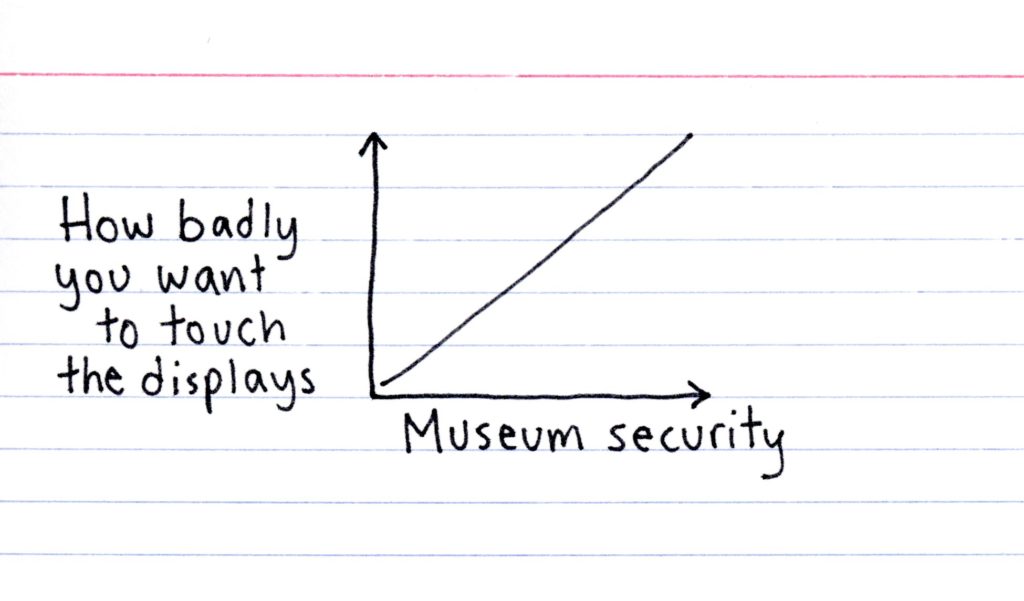
The post Forbidden poking. appeared first on Indexed.
TomfhainesI think the answer to this one is: "Yes, it is too much..."

The post Little but mighty. appeared first on Indexed.
TomfhainesI'm sure we've never experienced something like this.... :-P
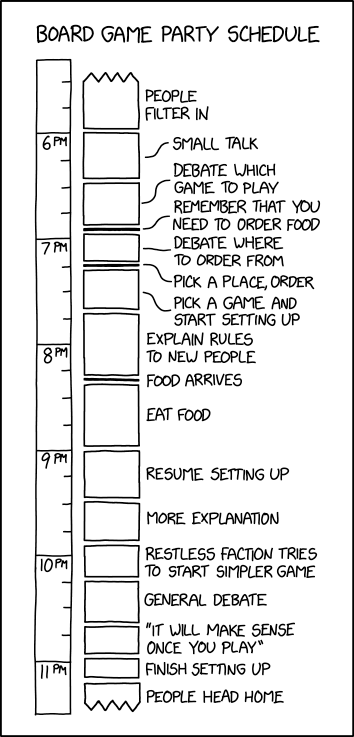
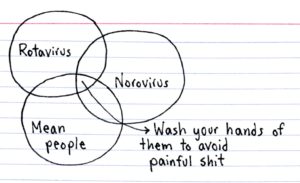
The post You know it in your gut. appeared first on Indexed.
So the Legendary Edition of Mass Effect is here. This means that millions of us will be taking yet another trip through Shepard’s universe, all the way from our initial drop point on Eden Prime to the baffling and disjointed conversation with the Star Child at the end of the third game. It’s a long journey and the voyage is filled with adventure, discovery, friendship, and brilliant character moments. But we know where it ends. We know how it ends. And sooner or later every player winds up standing in outer space with no helmet, arguing about robots with the hologram of a ghost of a ten year old boy.
And then the player asks, “How did we get here?”
The conventional wisdom is that the story of Mass Effect was great right up until the ending. The idea is that things were fine, except the writer went suddenly crazy in the last half hour and messed everything up. Critics of the series usually explain the ending in terms of plot holes. They’ve got a long list of unexplained contradictions, and so therefore the ending is bad because the writer didn’t explain things properly.
But I believe that the big problem with Mass Effect is one of structure. For me, the problems didn’t appear out of nowhere at the end of the third game. Instead they began at the very start of Mass Effect 2.
|
Link (YouTube) |
This is hard to talk about, because Mass Effect 2 is a really popular game. It’s the most popular entry in the franchise, and so you’re usually not allowed to say bad things about it. The Internet doesn’t know how to parse nuance, so everything is either absolute perfection or total garbage.
But if we’re going to talk about what happened to Mass Effect then I need you to at least be open to the idea that Mass Effect 2 had some non-obvious structural flaws. Yes, Mass Effect 2 features some of the best characters and sidequests in the history of the series. Mordin Solus is pure gold. Samara’s loyalty mission is a brilliant crime thriller told exclusively through dialog. Tali’s loyalty mission is an amazing courtroom drama with high emotional stakes. Legion’s mission offers the most interesting moral conundrum in the entire series, and that’s really saying something. But mixed in with those great stories and lovable characters is a story that creates tons of problems for anyone trying to write the third game.
But before we can talk about where Mass Effect 2 went wrong, let’s talk about the story that the first game set up. The story in Mass Effect is a really interesting hybrid of two different genres: Space Mystery, and Cosmic Horror.

Space mystery stories are the kind of stories we associate with things like Star Trek. And to be clear, I’m talking more about individual television stories and less about the movies. In these stories, we’re usually focused on solving some sort of puzzle. In the end, the goal isn’t so much to win a fight with the bad guys, but to think your way out of the fight. The goal is to find the secret to end the conflict, break the cycle, clear up the misunderstanding, placate the wayward computer, shut down the old technology, satisfy the ancient being, or something else along those lines. While the story might feature a lot of fighting, in the end the heroes win through brains instead of brawn by gaining some insight, knowledge, or by adhering to an idealistic moral code.
You can see this pattern over and over again in Mass Effect 1.
Feros is a mystery thriller where you need to figure out why everyone in the colony is behaving so oddly. And once you learn about the Thorian creature that’s mind-controlling the people, you need to go underground and confront it. Your goal isn’t to just kill the thing, but to gain access to the ancient knowledge it has about the Protheans.
Noveria is a horror mystery where you have to explore the labs and discover the creature that’s been killing the science staff. At the end your goal isn’t to kill the creature in a gunfight, but to learn what it has to tell you. The same holds true for Matriarch Benezia. Yes, you need to beat her in a gunfight, but when it’s over you don’t just drop a one-liner and walk away. In her final breaths, she teaches you things you need to know to beat Saren.
When you finally reach the mystery planet of Ilos, your goal isn’t to fight some oversized boss monster to unlock the conduit. Instead, the big payoff is a fifteen minute conversation with an old computer that wants to explain what the Reapers are.
Mass Effect 1 is, at its heart, a quest for knowledge, and the story it set out to tell was also a quest for knowledge. It asks the question, “Given that the Reapers are immortal gods with technology far beyond our comprehension, how can we stop them from killing us?” Just in case that’s too subtle for you, Shepherd’s final line of dialog in the game underscores this by explaining what the following games would be about:
SHEPARD: "The Reapers are still out there. They're coming. And I'm going to find some way to stop them!"
He’s going to find some knowledge to stop them. Not necessarily defeat them or kill them, but stop them. Shepard just wants to find the secret that will prevent them from destroying the galaxy as we know it.
The other major ingredient in Mass Effect 1 was…

If you’ve ever played Bloodborne, or if you’ve ever paid attention to the Cthulhu mythos, then this should seem pretty familiar to you. The Reapers are obviously tapping into a lot of the same design cues that inform the cosmic horror genre. The twist here is that it’s being done in the context of a science-fiction space adventure rather than a Victorian-style world of swords and primitive firearms.
The Great Ones of Bloodborne are strange tentacle monsters with vast intelligence beyond our comprehension. The Reapers are the same deal, except they’re tentacle-covered spaceships.
Cthulhu stories generally feature death cults where people worship the old gods, even though those gods seek to eradicate humanity. The Reapers have indoctrinated followers, who serve the exact same purpose within the story. They serve the old god, even though the god is here to kill them.
Cthulhu stories often feature characters who have been driven insane by exposure to knowledge not meant for the minds of mortals. In Mass Effect, Reapers give off an indoctrination field that has basically the same effect. If you spend too much time around a Reaper, you’ll either become a brainwashed slave or a gibbering madman.
Again, this feeds into the space mystery theme. Cthulhu stories don’t end with the protagonist beating the old gods in a gunfight. They generally end by closing the door to the otherworld, or by getting the old gods to go back to sleep for a little longer, thus buying us mortals just a little more time.
So that’s the setup that the first game gave us. Now let’s talk about…
In various interviews, the developers have made it clear that they didn’t know ahead of time what the Reapers wanted or how Shepard was going to stop them. But while the designers didn’t have the big mysteries planned out, I don’t think it’s fair to say that they didn’t have any plan at all. The designer of Mass Effect 1 might not have nailed down the specifics, but they deliberately designed the world with some built-in tools to make their job easier in future instalments. I want to highlight six things the Mass Effect 1 writer did to set up the later games…
1) Spectres
Shepard is a Spectre, which means he’s a sort of independent agent. It’s a bit like the 00 designation for James Bond stories. He supposedly works for the government, but he’s free to choose his goals and pursue them however he sees fit.
Anderson: “It’s your decision Shepard. You’re a Spectre now. You don’t answer to us.“
(Emphasis mine.)
He doesn’t need to call his boss and ask for permission to shoot some random dipshit in the middle of a mission.
This is an incredibly useful setup from a storytelling perspective, because it allows our protagonist to have agency. Read any book on screenwriting or creating fictional worlds, and you’ll find the general writing advice that
“Character is revealed through action.” – Your high-school lit teacher.
It’s the most basic tool of storytelling. You show a character doing something, and that action tells us who they are and what they value. When Frodo volunteers to take the Ring to Mordor, it tells the audience that he is selfless and courageous. This wouldn’t be nearly as clear or dramatic if Frodo was a footsoldier and his commanding officer simply ordered him to take the ring to Mordor.
In Mass Effect 1, you need to decide what to do about the Rachni Queen. Do you let her go free, possibly unleashing war on the galaxy once again? Or will you kill her, thus genociding her species forever? This decision carries a lot more weight when the player is the one to personally carry out the decision. You might not trust the Rachni Queen, but are you personally willing to press the button to end her species forever? Are you willing to open her cage yourself, accepting the future consequences for that choice?
You can imagine how much less interesting this moment would be if Alliance Command just ordered Shepard to kill the Queen and he did so in a cutscene without any player input.
It’s not that you can’t tell a story where the main character is part of a strict chain of command, it’s just way easier if the protagonist is independent. This explains why so many Hollywood stories so often feature soldiers that rebel, go AWOL, or end up seperated from the larger command structure.
My point is that having a designation like 00 Agent or a Council Spectre gives the writer the best of both worlds.
Salarian Councilor:
If you truly believe that Sovereign is the real threat, you must take whatever steps are necessary to stop it.
The main character works for some sort of governmental structure that can supply them with intel and resources, while at the same time it leaves the hero free to make decisions that drive the story and reveal their character. It allows our protagonist to be the central agent of change within the world.
2) The Cipher
In Mass Effect 1, Shepard gains the cipher. Through multiple visions and mind-melds with various Asari, Shepard becomes the only person besides Saren to be able to understand the Prothean beacons.
LIARA: It is probably in Prothean. This recording must be 50,000 years old!
LIARA: No wonder we cannot understand it.
SHEPARD: The message is all broken up, but I recognize some of the words. It’s a warning against the Reaper Invasion.
LIARA: Of course! Between the beacons and the cipher, an understanding of the Prothean language would have been… transferred into your mind.
Nobody else in the galaxy can do this. Shepard can understand Prothean Beacons, communicate with their computers, and even understand their language. That’s an incredibly useful tool for someone on a knowledge quest.
If the writer needed, they could even use the Cipher to say Shepard is able to use Prothean devices or open doors that nobody else can. This gives the writers a free pass to put Shepard at the center of any effort to learn about the Reapers. Large-scale RPG’s always have the question: “If the fate of the world hangs in the balance, then why is the main character the only person dealing with the problem? Why don’t they send in the army?”
Mass Effect 1 carefully constructed a scenario to address this problem. You don’t need an army to investigate ruins and look for clues in deep space. You need a small team of explorers, and Shepard is the most logical leader for that team. Boom! No need for a “chosen one” trope. Shepard just happens to be the person with the skills and knowledge to do this, and it has nothing to do with fate or superhuman ability. Instead, he’s the protagonist because of the things he earned in the first game.
3) Liara’s Research
Liara has spent a century studying the ancient past. Her studies aren’t just focused on the Protheans, but on the cycle of galactic death and rebirth that’s been running for millions of years. We may not know the names of the species that came before the Protheans, but Liara is the first person to see the pattern and study it in earnest.
Right there, built into the core of the squad, is the perfect character for dispensing exposition and quests. Do we need to send the player somewhere? We can say that Liara knows about some ruins there. Let’s say we want to have Shepard explore a ruin with an alien door that’s been sealed for 50,000 years. We can use Liara as an excuse for why our heroes can find and open this door when nobody else could. Liara can read symbols and explain why we have to do the requisite door-opening puzzle. Her career is directly relevant to the plot in a way the other characters aren’t.
And as a bonus, she is one of Shepard’s closest friends, and possibly even Shepard’s lover. Together, Liara and Shepard make the perfect team for looking for answers and learning about the ancient past.
4) Closed Relays
Thanks to the Rachni wars, most of the mass effect relays in the galaxy are closed. This gives the writer an incredibly powerful tool to create fantastical new places and a sense of mystery. We can have Shepard go off the edges of the map anytime we want, just by opening a new relay and entering a new uncharted star system.
5) Reapers have Been Revealed
At the end of Mass Effect 1, the Council got to see a Reaper up close. Maybe they believe in the doomsday legend and maybe they don’t, but they have witnessed first hand that there is a massive new military threat in the galaxy. Udina even says…
UDINA: “The races are scared. They’ve never faced anything like this before. They don’t know what to do. They want us to step forward.”
The council also might have died and been replaced by one that’s human-influenced to some degree. The writer has leeway to make them provide you with help if the story calls for it, or leave you to conduct your search alone if that suits gameplay better. The only thing this ending doesn’t allow for is that the leadership would dismiss Shepard and decide to do nothing.
6) Unique Super-Ship
The Normandy is a one-of-a-kind stealth ship with the best pilot in the Alliance. Do we need to send the crew where nobody has ever gone before? The stealth ship and Joker’s skill can explain why the journey is possible for us even though it’s impossible for others. On the other hand, the stealth systems aren’t a cloaking device and the ship can still be spotted visually. So the Normandy is as visible or as hidden as the plot requires, to allow or gate progress as needed.
These six things can be thought of as scaffolding for the sequels to build on. You don’t HAVE to use Liara’s research to move the plot forward. You don’t HAVE to make the cipher central to Shepard’s character. It’s not MANDATORY to open new relays. But these six elements give the future writer lots of options to work with.
Taken together, these plot elements make for a really good setup. Even if the writer didn’t have a destination in mind, they clearly had a direction. The first game created a mystery, and it also contained a bunch of tools for how the heroes might solve that mystery in future installments.
And then…

Shepard left the Alliance and the Spectre program, and instead of having lots of agency within the story he winds up taking orders from a sketchy new character that the audience doesn’t trust.
The Cipher is completely forgotten about and is never useful again. Instead, Shepard is the main character because, as Miranda says…
MIRANDA: “He’s a hero. A bloody icon.”
Instead of being the main character because of his knowledge and experience, he’s now the hero because he’s a famous badass I guess?
Liara’s research is jettisoned from the story. She forgets all about her life’s work, changes to a new personality, gets a totally new career, and even leaves Shepard’s crew.
The closed mass effect relays are never mentioned again.
The Council not only ignores the Reapers, they forget all about the massive attack on the Citadel at the end of the first game. Udina claimed that widespread fear was pushing the galaxy to action, but the second game erases that idea and once again has everyone believing that the Reapers are a myth and acting like the attack never took place.
The only thing the writer keeps from the first game is the Normandy. Well, they blow up the Normandy and then have to contrive a duplicate ship and also contrive a way for Joker to leave behind his prestigious career to work for criminals so he can continue to pilot the Normandy. Again, this burns screen time just so we can end up back where we started with the same ship and the same pilot. Even if you like the new setup, this is a horribly inefficient way to tell a story. We spend hours of screen time adjusting Shepard to his new status quo, and when it’s all over we haven’t made any progress on the Reaper plot.
The criticism at launch was that the plot of Mass Effect 2 “Doesn’t go anywhere”, but that’s really underselling the problem. The first game provided these building blocks for whoever wound up writing the sequel. Mass Effect 2 very deliberately went out of its way to reject, retcon, or even destroy those building blocks so they could never be used. Then it told its own self-contained story that left nothing for the writer of Mass Effect 3 to work with. Nothing that Shepard gains or learns in the second game is used in the sequel to help resolve the Reaper plot.
It’s like a superhero movie where the writer spends the first act on the origin story, and then when the second act rolls around they hit the reset button and begin another entire origin story. Maybe you like the second origin story or maybe you don’t, but either way it means it’s going to be very hard to write a coherent and satisfying third act.
But wait, it’s worse! Not only does Mass Effect 2 bulldoze the structure created by Mass Effect 1, and not only does it refuse to build its own framework to move the story in a new direction, but it actually saddles the third game with additional hanging plot threads that need to be resolved. The third game still needs to suddenly introduce a way to stop the Reapers, but it also needs to resolve the conflict with Cerberus, resolve the conflict between Shepard and the Virmire Survivor, deal with Shepard’s choice to keep or destroy the Collector base, and give closure and screen time to the dozen or so new squad members Shepard recruited, none of whom are ultimately useful in finding a way to stop the Reapers.
Mass Effect 2 didn’t just fail to use the ideas of Mass Effect 1, it actively made it harder for the writer to resolve the trilogy in a satisfying way. By the time we reach the opening credits of the third game, the writer has been painted into a very tiny corner. They need to come up with a resolution for the impossible invasion of space-gods, they have tons of obligations weighing them down in the form of dangling plot threads, and they have almost nothing to build on. Mass Effect 2 isn’t just a plot that goes nowhere, it’s a plot that makes it harder for the sequel to go anywhere.
In Mass Effect 1, Shepard said he was going to walk to Mordor. Then in Mass Effect 2 he sawed his legs off and ate his map. Then just before the closing credits he announces he still needs to get to Mordor. I WISH Mass Effect 2 was a do-nothing plot that went nowhere. That would have been a huge improvement over what we got.
Over the years, lots of people have made suggestions for things that would have improved the third game. They’ve come up with different explanations for the Reapers, different ways of beating the Reapers, and different possible choices for the player to consider at the end. A lot of these ideas have been good, but no matter how you end the series it was always going to feel rushed, arbitrary, and contrived, because the ending didn’t get any buildup or foreshadowing in the middle entry of the trilogy.

So that’s my problem with Mass Effect 2. It tells an anthology of great short stories instead of telling the one story it’s supposed to. This isn’t the only place where the writing went wrong in the Mass Effect franchise, but it’s one of the major faults with the series and for me it’s the one that hurts the most.
I know I’ve covered all of this in exhaustive detail here on the blog, and I’m sorry if this material feels too much like a re-run. I really wanted to take a video to promote my book, and this article comes from a couple of my favorite chapters.
And speaking of my book, it’s out now. You can get the Kindle version (cheap) or the print version (expensive) on Amazon. I know I talked about a “pay what you want” type deal. I’ll do that eventually, but I wanted to release the book while the Legendary Edition was still relevant and I’m basically throwing this all together at the last minute. If the given options are too expensive for you, just wait a bit. More options will be available later. Also, the original is still there if you’re looking for maximum convenience.
Also, please consider sharing this video in whatever groups might be receptive to it. I know Mass Effect 2 is a beloved game and not everyone is open to the idea that it caused problems for the series, but anyone who likes this line of thinking is probably going to like the book.

In any case, this needed to be said. If you’re a AAA development studio and you want to announce that you’re making a trilogy of games to tell a single overarching story, then you REALLY need to make sure your team understands the basics of story structure first. I’d love to see someone else try to tell a three-game story, but I really don’t want to end up with another frustrating ending of nonsense and contradictions.
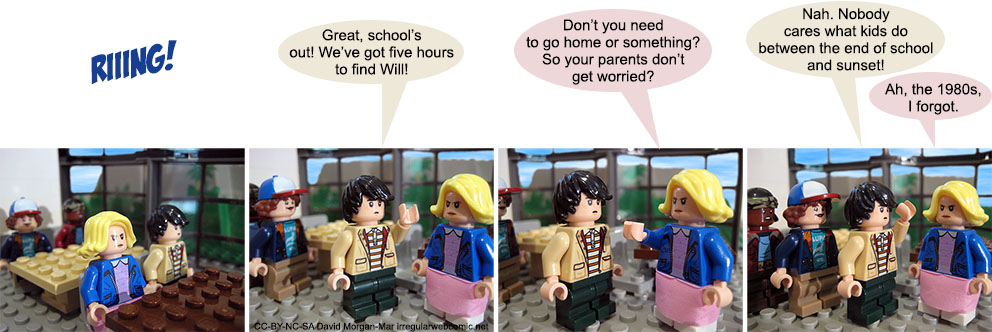
I'm very glad I grew up in an age when kids could go on adventures after school, heading down to the creek to look for frogs or tadpoles, doing impromptu scavenger hunts, exploring the neighbourhood. As long as you were home in time for dinner, it was all good. On reflection, it's interesting that the 1980s produced so many movies based around the plot element of a bunch of kids having adventures in that magical time between school and dinner (or during school holidays time). And I just realised this is why Stranger Things had to be set in the 1980s. You can't have a show/movie where kids do this sort of stuff, realistically set in the 2000s. Because kids just don't do this any more. New movies of this genre have to either be set in the past, where they are believable, or go out of their way to establish some contrived reason why the kids can go on these adventures (a) in the first place and (b) without their parents getting hauled in for child neglect. We haven't just lost the childhoods of that era, we've lost the ability to make fiction about childhoods in the same way.
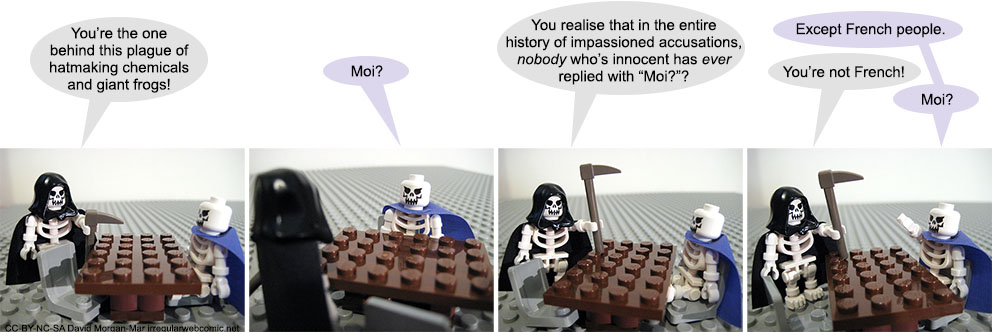
Seriously. "Moi?" is essentially the same as, "You got me. I did it. It's a fair cop." Just in French for style points.
TomfhainesWho would play such a thing?

For anyone unaware, Gloomhaven is a huge board game with zillions of components, released in 2017. It's one of the most critically acclaimed and popular board games ever. (At least among "serious" game players who keep up with modern board game releases - not necessarily casual gamers who pull out Monopoly every couple of months.) We see here that Siobhan was previously asking about Melville House being where "all the nerds live" not because she wasn't keen on going, but because she was keen on going.